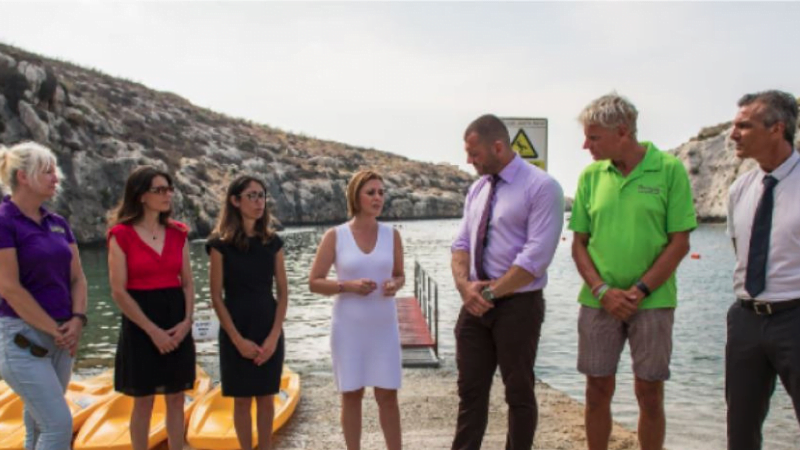A contract being published for the first time shows the Gozo Ministry agreed to pay a Croatian charged with fraud €29,000 for one White Flag to denote a ‘plastic-free beach’, a Freedom of Information request has revealed.
The amount is nowhere close to what Gozo Minister Justyne Caruana told parliament on 16 January when she had tabled costs totalling €7,776 for two White Flags on the island’s beaches.
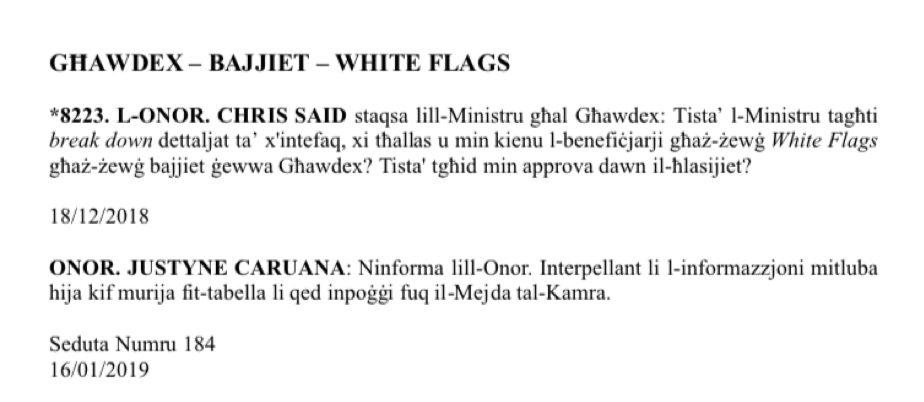
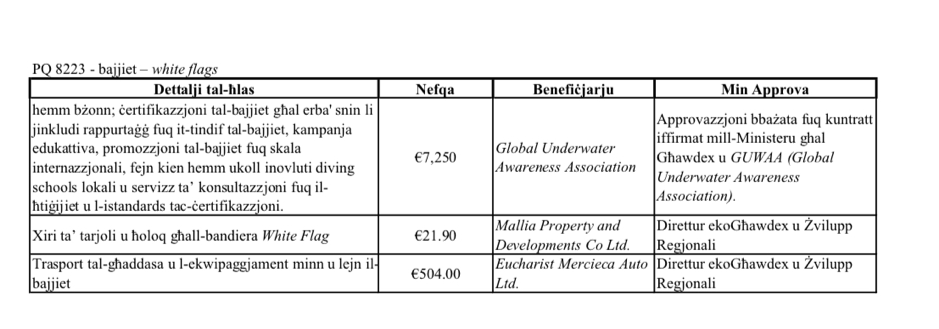
Yet, the contract reveals that when Caruana tabled that figure in parliament, the amount actually owed at the time was €20,000. Further installments were due at a later stage.
Meanwhile, The Shift revealed that the Croatian leading the project was facing fraud charges in his home country after funds given to him for the White Flag project “disappeared”.
The four-year agreement signed on 22 May 2018 shows the Gozo Ministry committed to paying €10,000 within seven days of signing the contract, and another €10,000 the following October.
That was three months before the Gozo Minister informed parliament that only €7,776 was spent when the contract shows that €20,000 were due.
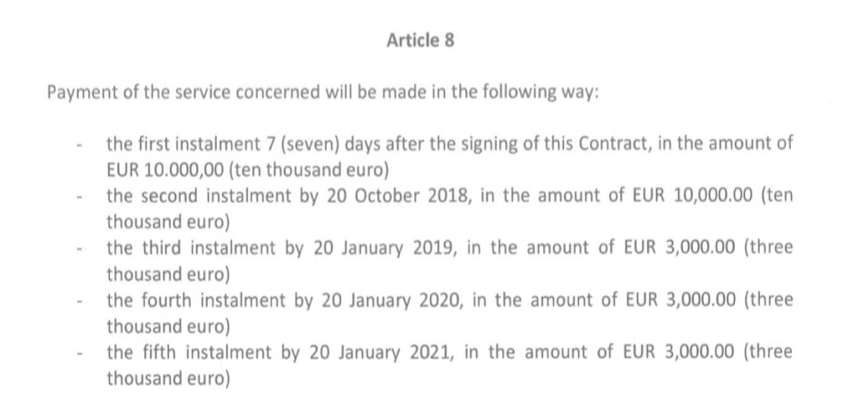
Caruana also omitted to tell parliament in January that the third installment of €3,000 was to be paid in only four days. Another €6,000 would be paid over the next two years.
The figure the Gozo Minister tabled in parliament did not match information given to The Shift by sources working for private companies that had sponsored White Flags, which led to the Freedom of Information request for a copy of the agreement signed for the White Flag at Mgarr ix-Xini.
Sources who contacted The Shift said the companies had paid €25,000 for a White Flag and the money was transferred to an account in Zagreb, Croatia.
Meanwhile, environmentalists were voicing concerns that the investment was not yielding results, questioning how the funds were being spent.

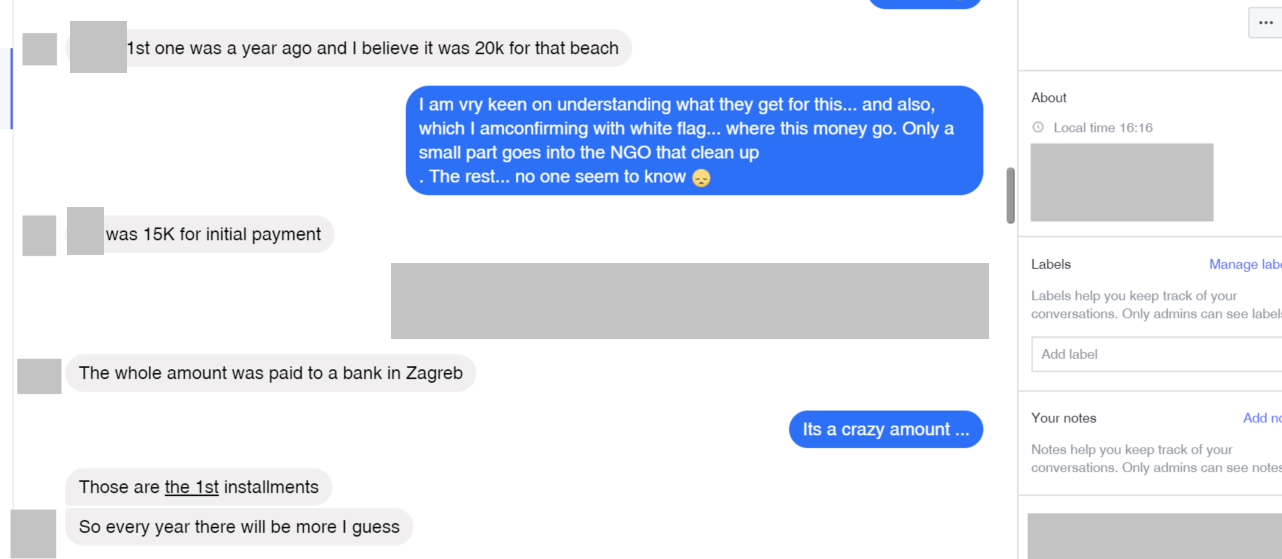
The conversation with the source on the money paid for White Flags to a Zagreb account.
The contract also shows that on top of the €29,000 for the flag, the Gozo Ministry also agreed to cover “all-inclusive accommodation” for all those involved. At the time of writing, the Ministry has not confirmed the cost.
The White Flag is meant to denote a ‘plastic free’ marine environment around beaches. The organisation committed to a clean up before the flag was raised, and regular monitoring and reports. Yet, the programme has no international accreditation by recognised bodies.
The so-called ‘environmental’ programme in Malta is a replica of Curavić’s plans in Croatia, detailed by The Shift, where he used fake celebrity endorsements to get the support of Ministers in the country for his White Flag idea. Croatian authorities filed charges against Curavić to recover taxpayers’ money.
The agreement in Croatia shows he charged HRK 200,000 (€27,000), similar to the asking price in Malta.
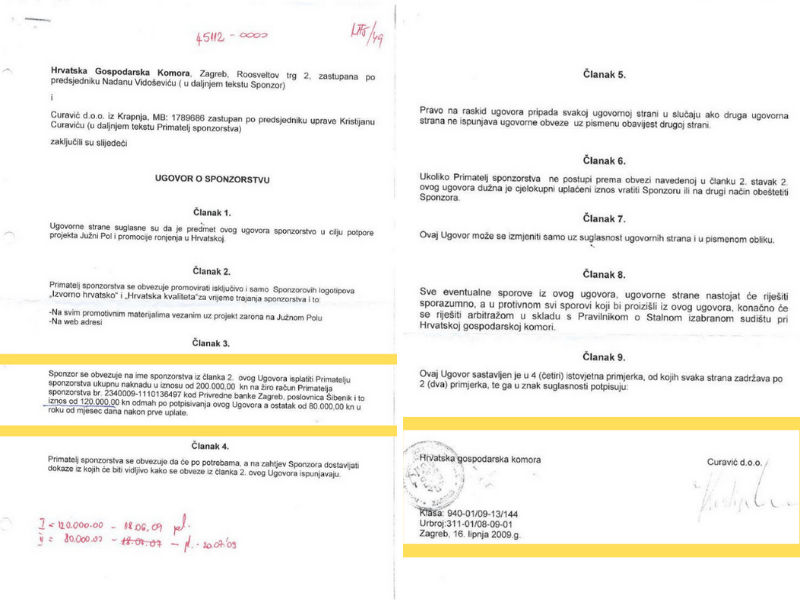
The contract between Croatian authorities and Kristijan Curavić.
After charges were filed against him in Croatia, Curavić turned up in Malta with the same idea. He found instant support from the highest levels of government, selling it with false celebrity endorsements. No background checks or due diligence were carried out, Environment Minister Jose Herrera confirmed, “because he did not sign any contracts” and “he was not defrauded”.
But what about taxpayers?
Last February, when answering another parliamentary question, Caruana still insisted the Gozo Ministry would ‘certify’ all the island’s beaches with White Flags, despite concerns raised two months earlier.

Kristijan Curavić, the ‘environmentalist’ behind the White Flag scheme. Source: Facebook
In Malta, Curavić had secured another four flags through sponsorships gained as a result of government endorsements, with a line up that included the Environment Minister, the Gozo Minister, the Health Minister, former President Marie Louise Coleiro Preca, Environment Commissioner Karmenu Vella, as well as Mark Farrugia, the right hand man of the Prime Minister’s chief of staff Keith Schembri.
Prime Minister Joseph Muscat had even lent his name to an international event on ocean protection that was meant to be held this year. Questions sent to the OPM were never answered, but the event never materialised.
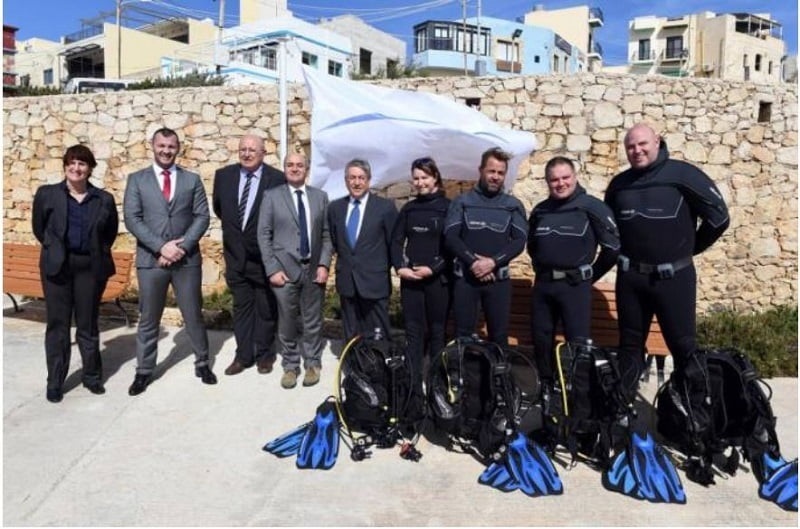
Environment Commissioner Karmenu Vella, Environment Minister Jose Herrera, CEO of the Environment and Resources Authority Louise Spiteri, and Kristijan Curavić launching the White Flag ceremony at Wied iz-Zurrieq in March last year.
The only Maltese individual involved in the project – Steve Abela of Lord’s Gym – told The Shift he had abandoned the project soon after The Shift published its findings. He could not locate Curavić, he said, because his former partner had left the country.
It is not yet clear whether Curavić has disappeared with the money he acquired in Malta from government and private sponsors. The project’s numerous websites and social media pages under the different organisations linked to Curavić have not been updated for months.
Private sponsors contacted by The Shift would not say how much they gave Curavić, but they said they had no further working relationship with him. Their logos were pulled from the project’s site.
The celebrities that Curavić put forward to impress government and State officials – Prince Albert II of Monaco Foundation and Bianca Jagger – both denied connections when contacted by The Shift.
Curavić has denied all accusations, saying they were part of “a systematic and coordinated attack intended to get at the Maltese government”.

